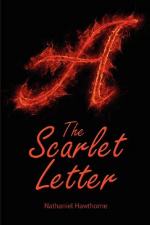How soon—with what strange rapidity, indeed did Pearl arrive at an age that was capable of social intercourse beyond the mother’s ever-ready smile and nonsense-words! And then what a happiness would it have been could Hester Prynne have heard her clear, bird-like voice mingling with the uproar of other childish voices, and have distinguished and unravelled her own darling’s tones, amid all the entangled outcry of a group of sportive children. But this could never be. Pearl was a born outcast of the infantile world. An imp of evil, emblem and product of sin, she had no right among christened infants. Nothing was more remarkable than the instinct, as it seemed, with which the child comprehended her loneliness: the destiny that had drawn an inviolable circle round about her: the whole peculiarity, in short, of her position in respect to other children. Never since her release from prison had Hester met the public gaze without her. In all her walks about the town, Pearl, too, was there: first as the babe in arms, and afterwards as the little girl, small companion of her mother, holding a forefinger with her whole grasp, and tripping along at the rate of three or four footsteps to one of Hester’s. She saw the children of the settlement on the grassy margin of the street, or at the domestic thresholds, disporting themselves in such grim fashions as the Puritanic nurture would permit; playing at going to church, perchance, or at scourging Quakers; or taking scalps in a sham fight with the Indians, or scaring one another with freaks of imitative witchcraft. Pearl saw, and gazed intently, but never sought to make acquaintance. If spoken to, she would not speak again. If the children gathered about her, as they sometimes did, Pearl would grow positively terrible in her puny wrath, snatching up stones to fling at them, with shrill, incoherent exclamations, that made her mother tremble, because they had so much the sound of a witch’s anathemas in some unknown tongue.




